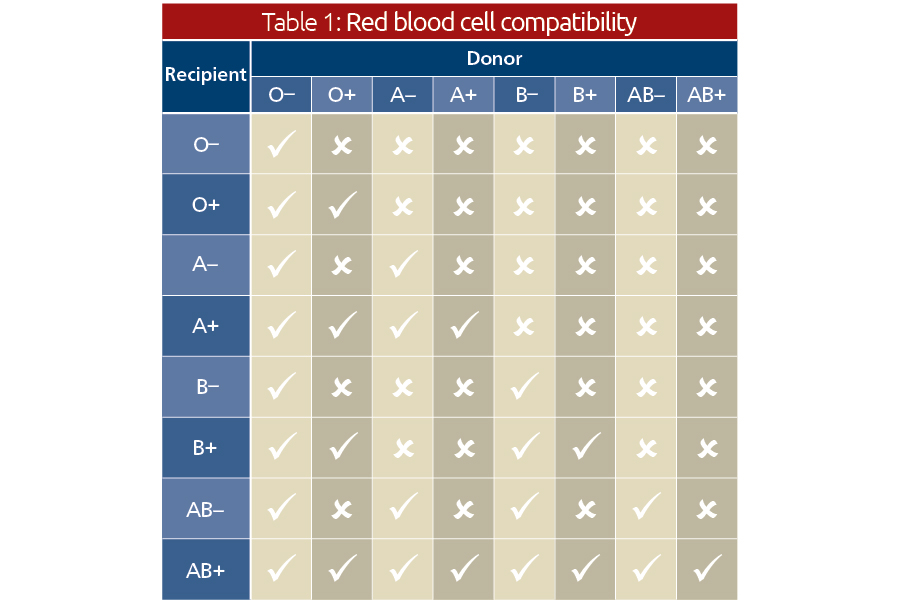As everyone is different, not everybody has the same blood. There are many different systems by which blood is grouped, but the two most important are the ABO and Rhesus systems. Genetics determine which antigens (combinations of sugars and proteins) coat the surface of red blood cells in the ABO system, and the presence or absence of a particular antigen called Rhesus D determines whether the blood is positive or negative. When combined the two systems give the eight main blood groups that the vast majority of people fall into.
O+
This is the most common blood type with over a third of people having it. Anyone with Rhesus positive blood – that’s over three quarters of the population – can receive it, so it is always in demand. However, people with O+ blood can only receive O+ and O- blood.
O-
These donors make up around 13 per cent of the population, but anyone can receive this blood, making it very useful in emergency situations when there hasn’t been time to establish a patient’s blood group. O- patients, however, can only receive O- blood.
A+
This is the second most common blood type in the UK, with just under a third of the population having it. It can be given to people with A+ and AB+ blood while someone with A+ blood can receive donations from A+, A-, O+ and O- donors.
A-
This blood is what around eight per cent of people have, and it can be given to anyone with any of the A or AB blood groups. However, people with A- blood can only receive blood from A- or O- donors.
B+
There are a similar number of people with this blood as A-, and their blood can be given to people with B+ and AB+ blood. It is more common in people of South Asian and Black ethnicity. People with B+ blood can receive any B or O blood types.
B-
This is one of the rarest blood types, with just two per cent of the population having it, but it is very useful because all group B and AB people – that’s one in eight – can receive it. B- individuals can only receive red blood cells from B- and O- donors however.
AB+
This is as uncommon as B-, but AB+ people are universal recipients, i.e. they can safely receive red blood cells from any blood type.
AB-
This is the rarest of the major blood types, though individuals with this group can receive donations from anyone with Rhesus negative blood.

Receiving blood from the wrong group can be potentially life-threatening.
